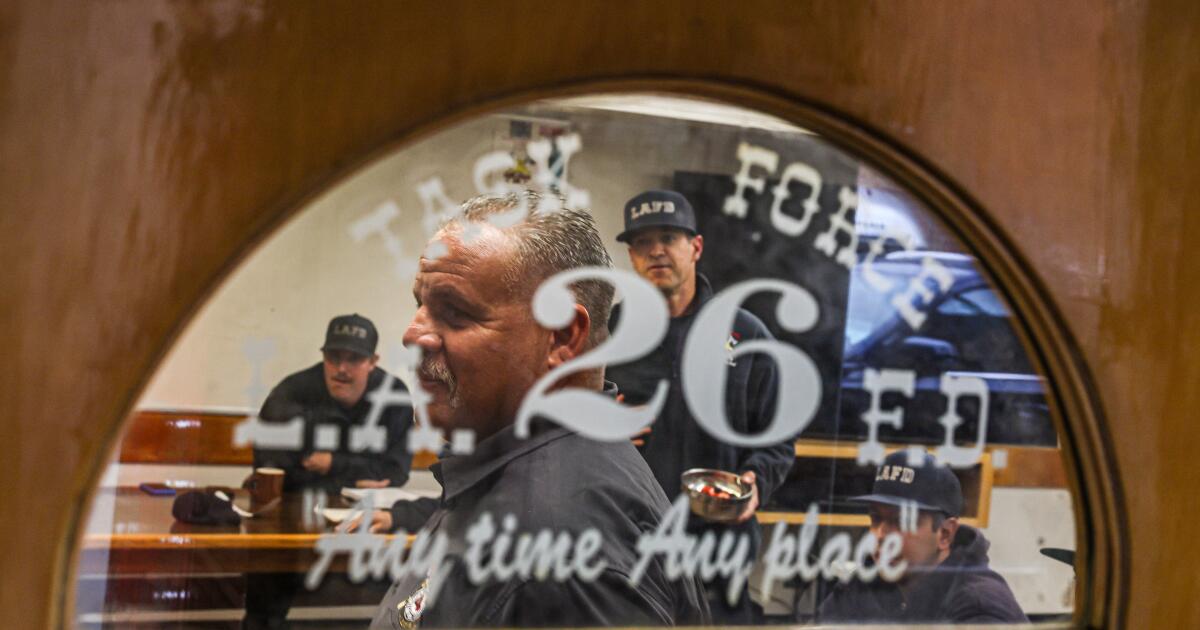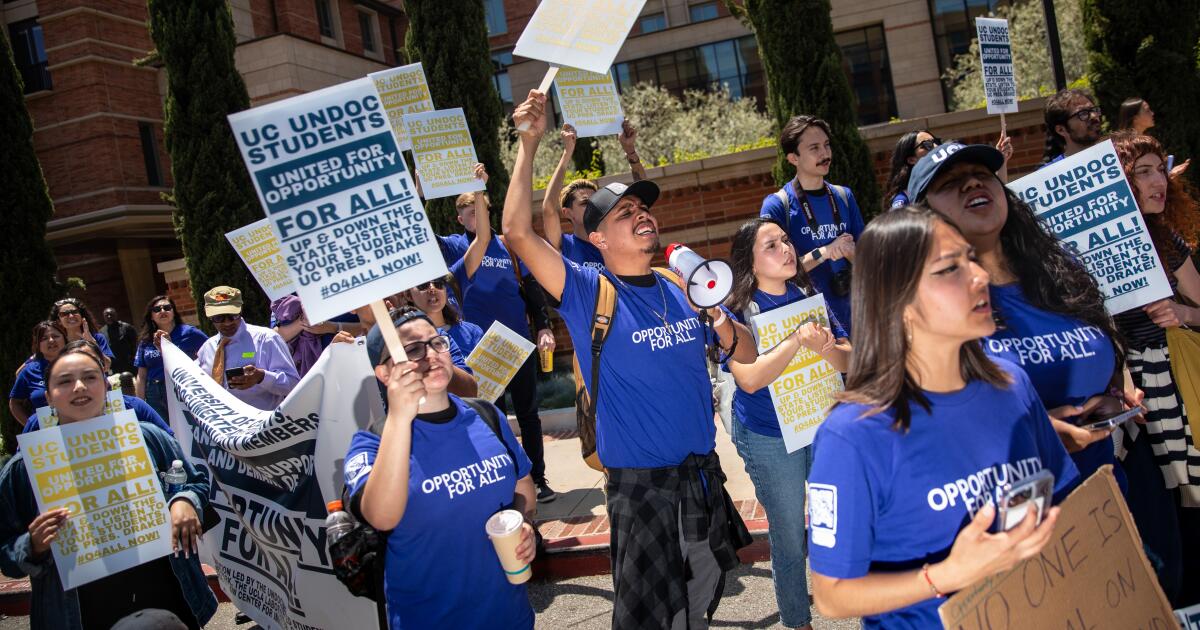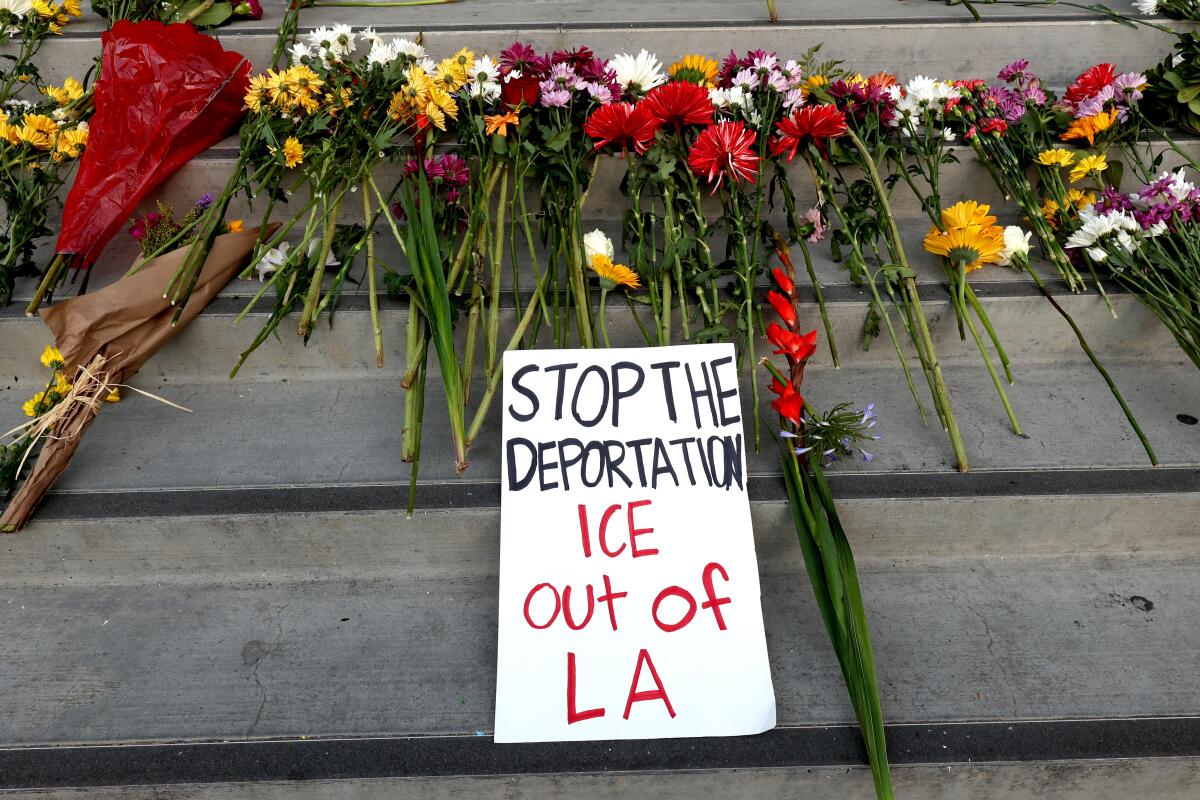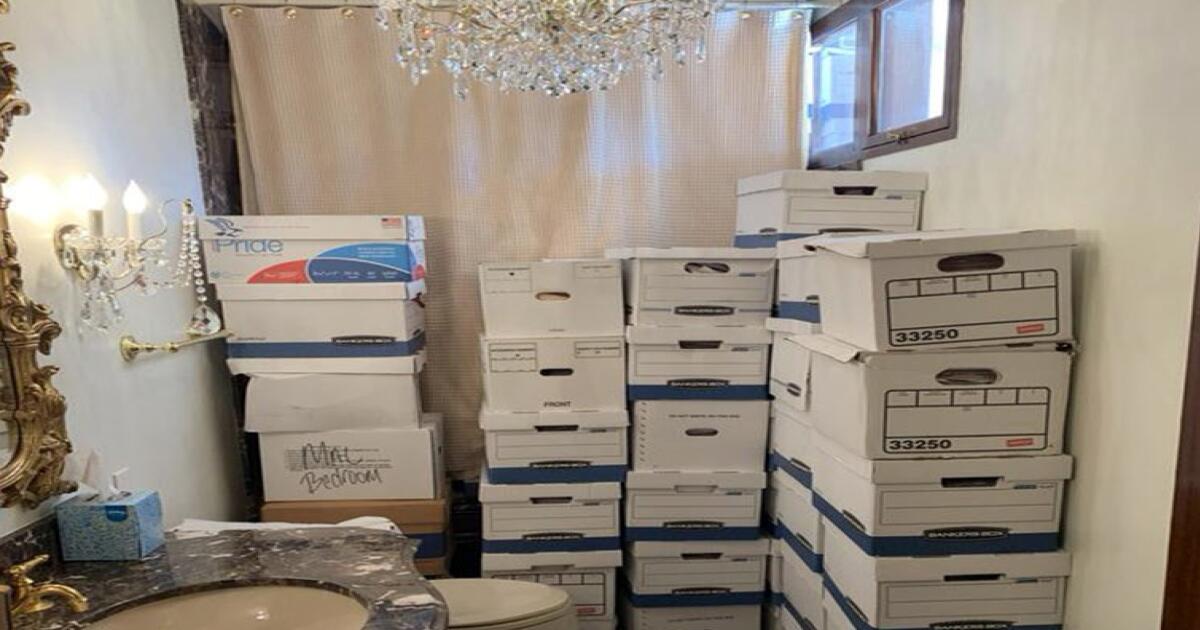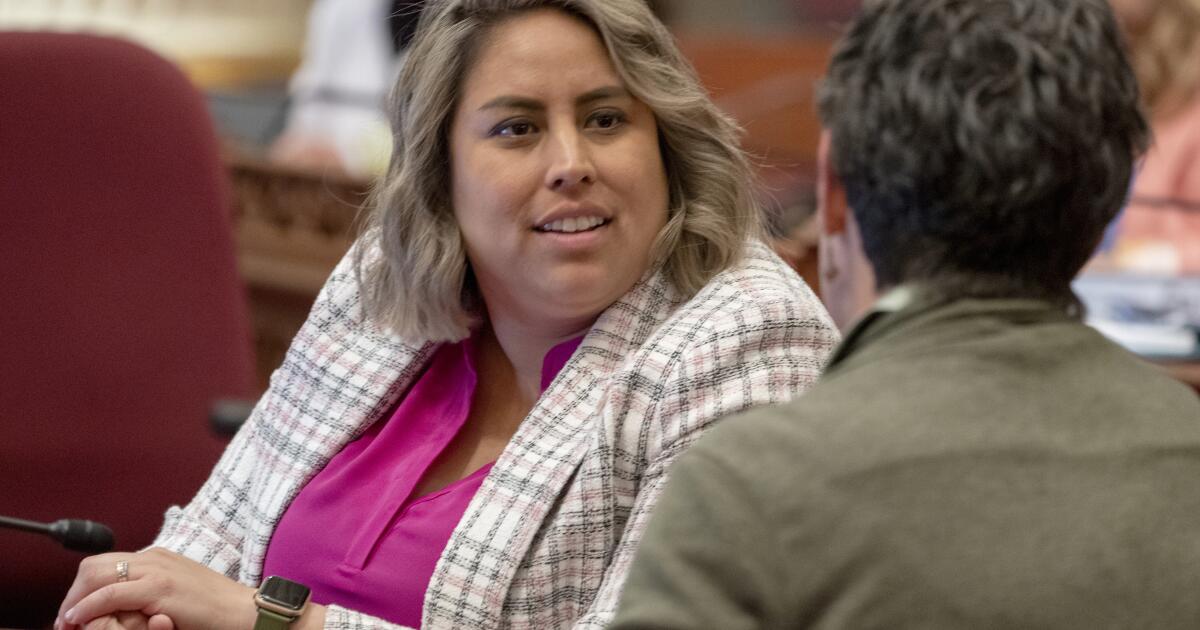For 24 years, immigrants lacking documentation who graduated from high school in California have received in-state tuition benefits at public colleges and universities under a law that’s given tens of thousands access to higher education that many couldn’t otherwise afford.
When the California Legislature passed Assembly Bill 540 in 2001, it was the second state in the nation — after Texas — to embrace such tuition policies. Bipartisan efforts quickly grew across the country, with more than 20 states adopting similar policies.
But recent court actions by the Trump administration are causing alarm among immigrant students and casting a shadow over the tuition benefit in California, the state with the largest population of people living in the U.S. without legal authorization.
On June 4, the U.S. Department of Justice sued Texas over its tuition statute for immigrants without authorization, alleging it violated a federal law that prevents people who do not have legal status from receiving public benefits. Texas did not defend its law and instead put its support behind the Trump administration, leaving 57,000 undocumented college students in the state in educational limbo after a federal judge blocked the statute.
Last week, the DOJ launched a similar suit in Kentucky, asking a federal judge to strike down a state practice that it says unlawfully gives undocumented immigrants access to in-state college tuition while American citizens from other states pay higher tuition to attend the same schools.
“Under federal law, schools cannot provide benefits to illegal aliens that they do not provide to U.S. citizens,” Atty. Gen. Bondi said of the Texas lawsuit in a statement that signaled a broader fight. “The Justice Department will relentlessly fight to vindicate federal law and ensure that U.S. citizens are not treated like second-class citizens anywhere in the country.”
Is California next?
Legal experts say that it’s not a matter of “if” but when and how the Trump administration will come for California’s law. The White House is already battling the state over liberal policies, including support of transgender students in school sports; sanctuary cities opposing ongoing federal immigration raids; and diversity, equity and inclusion programs in education.
“We are just waiting to see when it’s California’s turn,” said Kevin R. Johnson, the dean of the UC Davis law school, who specializes in immigration. Johnson predicted the White House was going after “lower-hanging fruit” in more conservative states before California, where Trump will face “firm resistance.”
The potential threat has shaken California’s undocumented students.
“If I no longer qualify for lower tuition, I really don’t know what I would do,” said Osmar Enríquez, who graduated last month with an associate’s degree from Santa Rosa Junior College and will enroll at UC Berkeley in August to embark on an undergraduate degree in media studies.
The difference between in-state and out-of-state tuition for people like Enríquez can be thousands of dollars at a community college and tens of thousands at CSU and UC campuses. International students pay out-of-state rates. At Santa Rosa Junior College, the average tuition for two semesters for an in-state student is $621. For an out-of-state student, it’s $5,427.
“What I see the Trump administration doing is trying to exclude us,” said Enríquez, who aspires to one day operate a public relations company. “They don’t want us to get educated or to reach positions of power. And with everything going on now, they are just trying to dehumanize us any way they can.”
More than 80,000 undocumented college students in California
Campus and university-level data on undocumented student populations can be difficult to estimate.
Although universities and colleges keep track of how many students without documentation receive tuition exemptions under AB 540, the data also include citizens who qualify for in-state tuition. These students grew up in the state and graduated from a California high school before their families moved elsewhere.
Numbers are also complicated by changes in the California Dream Act Application, which was established for students lacking documentation to apply for state aid but has expanded to allow students who are citizens and have an undocumented parent.
Out of the University of California system’s nearly 296,000 students, it estimates that between 2,000 and 4,000 are undocumented. Across California State University campuses, there are about 9,500 immigrants without documentation enrolled out of 461,000 total students. The state’s biggest undocumented group, estimated to be 70,000, comprises community college students and recent graduates such as Enríquez.
Born in Mexico and brought by his family to the U.S. when he was a 1-year-old, Enríquez said in-state tuition has made his education monumentally more affordable. At his next stop, UC Berkeley, in-state tuition and fees last year amounted to $16,980. Out-of-state and international students had to pay a total of $54,582.
What students say
Several undocumented students from UCLA, Cal State Los Angeles and other schools declined interviews with The Times or requested to be cited without their names, saying they were fearful of identifying themselves publicly as the federal government undertakes a third week of immigration raids across Southern California.
“I just want to go to school. What is wrong with that?” said an undocumented graduate student at Cal State Los Angeles who received his undergraduate degree at a UC campus. The Latin American studies student asked for his name to be withheld because of concern over immigration enforcement agents targeting him.
“I don’t only want to go a school, I want to go to a public university. I want to contribute to my university. I want to become a professor and teach others and support the state of California,” he said. “Why are we so bent on keeping students from getting an education and giving back?”
Sandra, a Cal State Northridge student who asked to be only identified by her first name, had a similar view. An undocumented immigrant whose parents brought her from Mexico to Los Angeles at age two, she said she would not be in college without the in-state tuition law.
“I was not eligible for DACA, so money is thin,” Sandra said, referencing the Obama-era program that gave work authorization to undocumented immigrants who arrived in the U.S. as children but hasn’t taken new applications since 2021. “We save and we squeeze all we can out of fellowships and scholarships to pay in hopes that we use our education to make a difference and make an income later.”
Legal questions
The Trump administration’s challenge to the tuition rules rest on a 1996 federal law that says people in the U.S. without legal permission should “not be eligible on the basis of residence within a state … for any post-secondary education benefit unless a citizen or national of the United States is eligible for such a benefit … without regard to whether the citizen or national is such a resident.”
“There are questions about exactly what that means,” said Ahilan Arulanantham, co-director of the Center for Immigration Law and Policy at UCLA Law School. “Does that apply to universities that do not use residency as a requirement for the tuition rate but instead use high school graduation in the state?” he said, explaining that state practices differ.
In California, an undocumented immigrant who did not graduate from a high school in the state would typically not qualify for reduced tuition.
The Justice Department has argued in court that giving in-state tuition to immigrants without proper authorization violates the federal law. Some Trump opponents point out that the law does not speak specifically to tuition rates, although courts have interpreted the word “benefit” to include cheaper tuition.
In the recent Texas case, undocumented students, represented by the Mexican American Legal Defense and Education Fund, have filed a motion in court, asking the judge to allow them to argue in support of upholding reduced tuition rates.
The tuition policies have survived other legal challenges.
Before Trump administration intervened, the Texas law appeared to be legally sound after a federal appeals court ruled in 2023 that the University of North Texas could charge out-of-state students more than it charges in-state undocumented immigrants. In that case, the court said the plaintiffs did not make good case that out-of state students were illegally treated differently than noncitizens. But the court suggested there could be other legal challenges to tuition rates for immigrants lacking documentation.
The California law has also withstood challenges. The state Supreme Court upheld its legality in 2010 after out-of-state students sued. The next year, the U.S. Supreme Court refused to hear an appeal of the case.
The California court concluded that undocumented immigrants were not receiving preferential treatment because of their immigration status but because they attended and graduated from California schools. Justices said U.S. citizens who attended and graduated from the state’s schools had the same opportunity.
Still, momentum has built to abolish in-state tuition rates for immigrants without legal documentation.
This year, lawmakers in Florida — which had a rule on the books for more than a decade allowing tuition waivers for undocumented students — eliminated the option. Prior to the federal action against Texas, legislators in the state also tried and failed to follow Florida’s lead. During this year’s legislative sessions, bills were also introduced in Kansas and Minnesota, although they have not passed.
